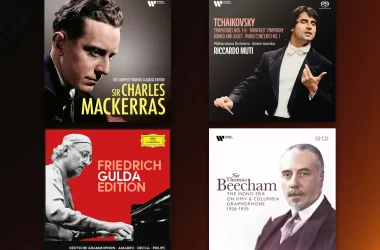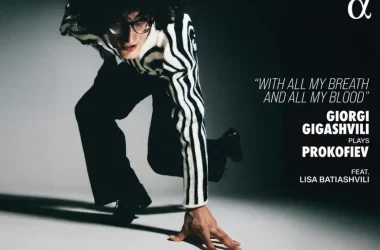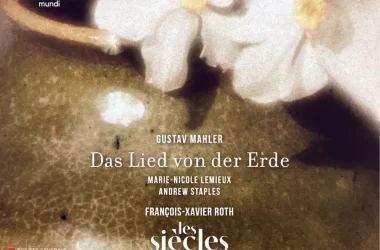Winning the BBC Young Musician of the Year in 2016, cellist Sheku Kanneh-Mason’s career was launched with a fanfare, resulting in a prompt signing to Decca Classics. His premiere album entitled “Inspiration” featured at its core the Cello Concerto he won the competition with — Shostakovich no.1. It gave promising insight into a performer encasing the main work with a potpourri of encores and highly personal pieces, a model Decca and Kanneh-Mason have tried to emulate in this latest release, “Elgar”.

When Kanneh-Mason toured with Elgar’s Cello Concerto, I was sitting five rows back, directly in front of him in Philharmonic Hall, Liverpool. The presence he brought with Andrew Manze was remarkable, and being so close enhanced the overall experience. Despite the broader tempos, seeing his emergence was impressive, captivated my imagination and interest in the release of this work.
Kanneh-Mason’s Elgar begins impressively, with a narrower vibrato than many cellists. The first movement has all the peaks in the appropriate places, but lacks the subtleties of phrasing the concerto needs as a recording. The first climax lacks the emotional punch needed to draw the listener completely in, and the subsequent peaks are surprisingly similar, with tailing off at the ends of phrases. When the modulation to the major comes, the colors are too similar and miss a section that should temporarily break the seriousness of the movement. The second movement, whilst expressive, reveals a lightness of tone at the extreme registers of the cello, and Kanneh-Mason struggles to produce sufficient sound in the boldest passages.
The third movement is overly reserved, swells have insufficient rise and the tenderness many interpreters find is not fully realized. The opening phrases can be exquisite, but are too evenly tempered in this altogether relaxed movement. On reaching the last movement, Kanneh-Mason’s subtleties of emotion and color are too discrete to make this finale completely convincing. Jaqueline du Pré’s communicative prowess is the benchmark in which all performances, rightly or wrongly, are measured against. One cannot fault Kanneh-Mason’s attention to rhythmic detail or his security of intonation. But while his live performances have an energy and sense of spontaneity, the delicacies and intricacies of Elgar need finer tuning for a successful studio recording.
Simon Rattle — the ever sympathetic accompanist, helps Kanneh-Mason to fulfill his vision, as he does with Truls Mørk in his City of Birmingham Symphony Orchestra recording. There is similar orchestral shaping in both performances though Mørk, even slower than Kanneh-Mason, gives Rattle a wider spectrum of expressive material — grandeur at times, more restrained at others, in an overall highly commendable performance. Paul Watkins with Sir Andrew Davis and the BBC Philharmonic are emotionally intense. Watkins’ tempi are brisk, but always controlled. He finds the intensity in the melodic lines and with Davis’ understanding of Elgar, the orchestral accompaniment is as intrinsically Elgarian as one could hope for. Alisa Weilerstein’s rendition is one to equal du Pré’s famed performance with Sir John Barbirolli. Working with Daniel Barenboim and the Staatskapelle Berlin, Weilerstein doesn’t imitate du Pré, but is a formidable contender for the top spot. With an uncompromising tone and a sense of authority, Weilerstein is unwavering from the first note to the last.
The remainder of Kanneh-Mason’s album is a miscellany of ‘fillers’ and encores. Opening the album is a pastiche of Kathleen Ferrier’s legendary take on the traditional tune, “Blow The Wind Southerly”. Without lyrics or knowledge of them, the performance lacks meaning. Forming the link between this and the concerto is Simon Parkin’s arrangement of ‘Nimrod’ for 6 cellos. Insufficient variety in the timbres results in very dense textures. Programming it before Elgar’s own orchestrations emphasizes the unsympathetic arrangement; furthermore, Kanneh-Mason is not given ample opportunity to shine. More successful is Parkin’s arrangement of Elgar’s “Romance Op.62”, in which the Heath Quartet provide a beautiful accompaniment. Fauré’s “Elégie”, again arranged by Parkin, lacks the impact of the composer’s original version for cello and piano. Whilst an admirable performance in this arrangement, it falls short of du Pré’s highly distinguished performance with Gerald Moore.
The carbon-copy approach of recreating Kanneh-Mason’s “Inspiration” album is disappointing. The programming overall is emotionally unvaried and the arrangements do little to enhance the composer’s originals. The concerto is uniform in color and temperament, lacking the insight many soloists and orchestras find in it.
Elgar – Cello Concerto, Arrangements
Sheku Kanneh-Mason – Cello
London Symphony Orchestra
Sir Simon Rattle – Conductor
Decca Classics, CD 4850241




















